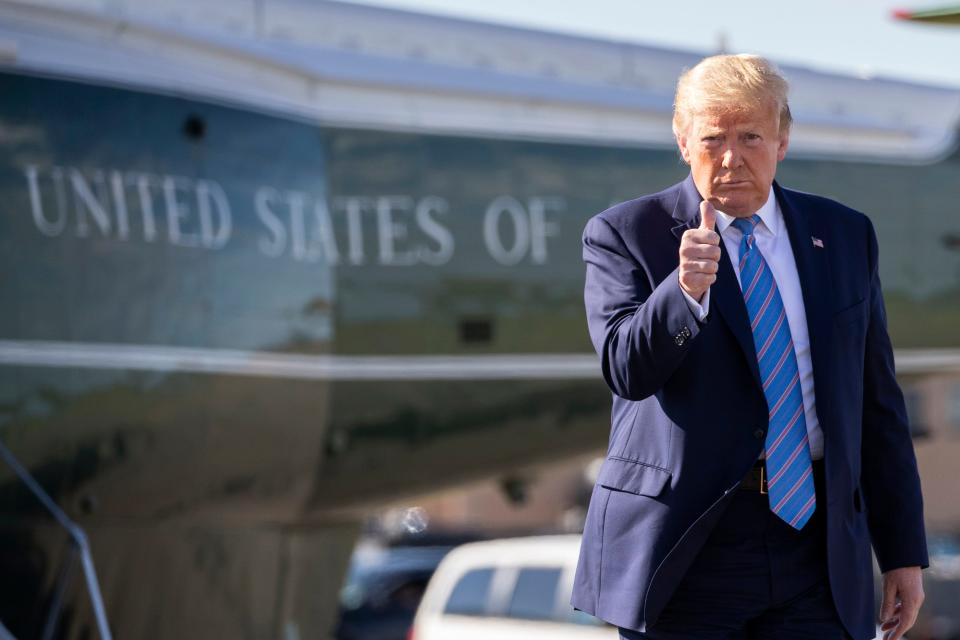Donald Trump right to suspend guest worker visas — American STEM workers deserve to work
The Trump administration announced Monday executive and regulatory action that will suspend guest worker visas through the end of the year and permanently end the exploitation of the H-1B visa system. Together, these actions go further than any administration in history toward prioritizing American jobs. With about 30 million Americans still out of work largely due to the COVID19 pandemic, it is a welcome step.
The administration’s new policy will, among other steps, restrict new H-1B visas and L visas, which are utilized primarily by the tech industry and large corporations, H-2B visas for non-agricultural seasonal workers, and J-1 visas, meant for research scholars, professors, and other cultural programs.
While these visas have a necessary place in our legal immigration system, over time they have evolved to serve corporate interests at the expense of both American jobs and the welfare of the immigrants who utilize them.
Abuse of the H-1B visa system
H-1B visas, in particular, have become an insidious way for major corporate industries, particularly tech companies, to exploit legal loopholes and avoid hiring — or even to replace — American workers who are deemed “too expensive.”
According to the Economic Policy Institute, 60% of the H-1B positions in the fiscal year 2019 were at a wage lower than the local average wage. Increasingly, H-1Bs are used less to secure hard-to-find competencies than they are to subvert the American worker market to get foreign labor at a discount.

In 2015, Disney laid off about 250 American workers, replacing them with H-1B recipients brought in by an outsourcing firm based in India. Some of the laid-off American workers were then forced to train their own replacements. In testimony before a Senate Judiciary subcommittee in 2016, former Disney employee Leo Perreo broke down crying as he recounted getting laid off from a job where he had just received the highest possible performance review and the humiliation of having to then train his foreign replacement.
Similar stories came out of corporations like Verizon, Northeast Utilities, Bank of America, New York Life, Hertz, and Southern California Edison. These companies aren’t reducing their workforce; rather, they’re laying off qualified Americans so they can import or outsource to foreign workers to do the same job.
Hal Salzman of Rutgers University testified before the Senate in 2016 that “all evidence and events ... suggest we are heading down a very different path consisting of legislation, policies, and programs to substitute guestworkers for U.S. STEM workers and graduates."
Thanks to the Trump administration, major loopholes in the H-1B visa system that allow this substitution of Americans with cheaper foreign replacements will now be closed.
Work permits for foreigners: Suspending work permits for foreign graduates would be a terrible mistake for US economy
But it’s not just American workers who are impacted. The short-term visa system also incentivizes poor treatment of the visa recipients themselves. Workers brought to the U.S. on H-1Bs are tied to their employer for the length of the visa. A job loss means immediate return to their country of origin, possibly for the entire family, a situation Gaurav Mehta, an Indian H-1B called “constant fear.”
A year-long investigation by NBC’s Bay Area’s Investigative Unit and The Center for Investigative Reporting uncovered systemic abuses of the H-1B system that resulted in “Silicon Valley’s ‘body shop(s)’” where skilled and educated foreign workers were treated like "indentured servants."
Ignoring American STEM workers
The corporate tech lobby tends to argue that they cannot find Americans certified in science, tech, engineering, and math (STEM) to perform these highly skilled technology jobs. But that is, increasingly, not the case. According to Census Bureau data, the country has more than twice as many workers with STEM degrees as there are STEM jobs.
According to a 2014 analysis, about a two-thirds of native-born Americans with STEM undergraduate degrees work in unrelated fields — perhaps because the STEM jobs they could have are taken by cheaper foreign labor and the fact that wages in the field are suppressed (STEM wages have increased only modestly in over a decade, despite being a high-demand field).
Saving America amid the turmoil: It feels like the American experiment is failing. Here's how we can still save it.
The U.S. federal government spends approximately $3 billion a year incentivizing U.S. students in STEM education — why, then, does our immigration system incentivize U.S. companies away from hiring them?
The issues with the highly skilled H-1B and L-1 visas also apply to the other guest worker visas subject to the Trump administration's suspension.
The J-1 visa program was thrust into the spotlight recently after the arrest of Xin Wang, a high-ranking Chinese military officer and scientist, for his attempts to steal medical research from the University of California. Wang was in the U.S. on a J-1 work-study exchange visa.
And the H-2B guest worker program can keep jobs away from the neediest Americans.
Our legal immigration system is badly in need of substantive reform to ensure that visa programs, and the immigrants who benefit from them, are not exploited. But as millions of Americans struggle to find work, the measures announced by the White House will finally give them a fighting chance in industries where Americans are too often ignored and displaced.
Rachel Bovard is the senior director of policy at the Conservative Partnership Institute. She is co-author of: "Conservative: Knowing What to Keep," with former Sen. Jim DeMint, and a senior adviser to the Internet Accountability Project. Follow her on Twitter: @RachelBovard
You can read diverse opinions from our Board of Contributors and other writers on the Opinion front page, on Twitter @usatodayopinion and in our daily Opinion newsletter. To respond to a column, submit a comment to letters@usatoday.com.
This article originally appeared on USA TODAY: American workers deserve jobs. Trump right to end H-1B visa abuse.

 Yahoo Movies
Yahoo Movies 